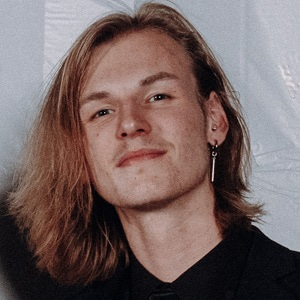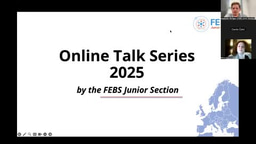Meet Bram Boon: FEBS Junior Section members' interview series

Our interviewee today is Bram Boon, a Master’s degree student in Molecular Medicine and Innovative Treatment at the University Medical Center Groningen, University of Groningen, the Netherlands. Bram is a board member of the Young-NVBMB, the Junior Section of the Dutch Society for Biochemistry and Molecular Biology (NVBMB), a FEBS Constituent Society.

What motivated you to pursue a career in science? Why did you choose this field?
For as long as I can remember, I have wanted to make a contribution to the world. Through science, I am able to combine this desire to do meaningful work with my personal interests, specifically the brain.
Briefly introduce your research topic. What is the purpose of your research?
I am mostly interested in neurodegenerative diseases and clinical neuroscience! The past months, I have followed a research internship investigating microglia in Alzheimer's disease. As little is known about how the specific pathways and genes identified in Alzheimer's disease function, we aimed to increase our understanding of the disease mechanisms and hopefully identify clinical targets. For my next internship, I am looking to broaden my horizons a bit, as I am currently eyeing up a project investigating neuroregeneration following spinal cord injury!
What excites you most about your work or research?
The implications! Neurodegenerative diseases are shockingly prevalent and are only looking to affect more lives in the coming years. To me, assisting in increasing the quality of life of people afflicted by these conditions is a purposeful and downright necessary endeavour.
Among all the scientific discoveries of all time, which is your favorite? Why?
Pffff.... That is some question. ;) While countless researchers have elucidated the many processes integral to molecular biology, I must confess I am often also quite interested in the more ecological rationale behind these processes. For instance, in the field of evolutionary medicine, which investigates more ultimate reasons as to why certain genes which are detrimental to one's health are able to persist in a population. For reasons such as affecting the organism outside of the fertile period, having a beneficial effect on a different system, or by affecting inclusive fitness, examples of this help me realise the frailty and maladaptiveness of biological processes such as evolution, and gives me a better understanding of how these diseases and deficiencies continue to exist!
What do you do as a scientist to make your work interesting and accessible to the public?
While I sometimes still struggle trying to break down scientific terminology into understandable terms, I attempt to talk to as many different people outside the scientific community as possible to explain what makes this research worthwhile and interesting!
What do you like to do in your spare time? Do you have hobbies?
I love cooking, as well as being out in nature or playing video games!
How did you learn about the FEBS Junior Section? What motivated you to become a member?
We, as Young-NVBMB, were asked to promote activities organized by the FEBS Junior Section. Due to this, I became more and more engaged with this interesting group of people, which has helped me a lot in learning about the experiences of young scientists around Europe!
What is the importance of getting involved in FEBS JS activities for students and young scientists?
While presenting yourself and getting to know people in your field is of the utmost importance in a collaborative field such as science, often you will find yourself unable to break away from your direct environment. By participating in FEBS Junior Section activities, you can communicate with people from a multitude of countries and learn the similarities and differences in working and studying all across Europe!
What advice would you give to aspiring students and scientists?
Look around you; what is that interests you most? The best motivation in science is to follow your heart. Next to that, attend as many FEBS Junior Section activities as possible! ;)
Where do you see your career going next?
I am hoping to pursue a PhD in the field of Molecular Neurobiology, as soon as I finish my MSc. education.





Join the FEBS Network today
Joining the FEBS Network’s molecular life sciences community enables you to access special content on the site, present your profile, 'follow' contributors, 'comment' on and 'like' content, post your own content, and set up a tailored email digest for updates.